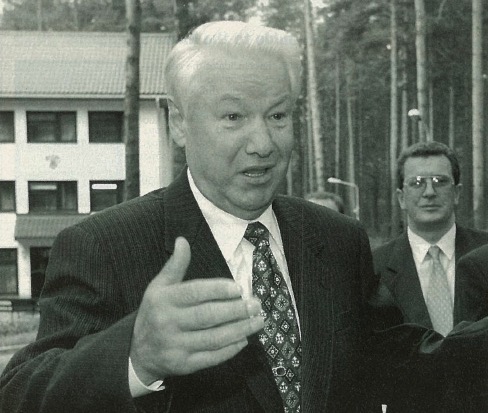“On Freedom of Conscience and on Religious Association” was the Russian parliament’s legislative response to the onslaught of missionary activity by Christian and other religious groups in the heartland of the former Soviet Union. Under heavy international pressure, including a threat by the US Senate to cut off all US economic aid to Russia, President Yelstin partially vetoed the bill on July 22. The Russian Parliament originally passed the bill 337 to five. It can now either try to override the veto completely, or to revise the bill and accommodate Yeltsin’s requested changes.
Only specific “traditional religions” of Russia–the Russian Orthodox Church, Islam, Buddhism and Judaism–would enjoy full religious rights under the bill. Also recognized were “traditionally existing local beliefs” of various peoples which would appear to include some pagan and shamanist religions, plus a few minor Christian sects such as the Pentacostals, Seventh Day Adventists and Baptists, who were in Russia since the time of the Czars. All others–Roman Catholic, most Protestants, Moonies, Hindus, etc.–could register as a “religious group” and be allowed to meet, but not to hold property, publish books or exist as a legal corporate entity. Upon application and meeting of strict standards, such religious groups could become full-fledged “religious organizations”–but only after fifteen years. The legislation would effectively put out of business most foreign Christian missionary activity in the country, as well as curtail the functioning of several small Hindu groups such as ISKCON, the Brahma Kumaris and the Tantra Sangha.
The Russian Orthodox Church is the main force behind the bill. Their leaders were shocked a few years ago when American evangelist Billy Graham swept into Moscow and attracted hundreds of thousands of Russians to his giant stadium rallies. They had never seen such religious fervor. Staid Orthodox Church services are sermon-less and conducted in archaic Slovonik, incomprehensible to modern Russians. Graham and other foreign preachers speak dynamically and are translated into clear, modern Russian.
Various nationalist groups back the Church even though they don’t support Christianity–85 to 90% of all Russians are atheists or indifferent to religion. But they view the foreign missionary activity as a threat to Russian identity, and–after the Aum Shinrikyo nerve-gas attack in Tokyo–a threat to national security. Aum Shinrikyo had many Russian members and a weekly prime-time Moscow TV show. Locals dislike, too, the Jehovah’s Witnesses, who refuse to salute the flag. The only group really opposed to the bill is the new class of Russian businessmen (instrumental in financing Yeltsin’s election) who would suffer from international sanctions.
The bill (available in English by email from keston.institute@ keston.org) is a more reasonable document than Western media summaries of it might lead one to believe. Much of it does indeed guarantee, as its title states, “Freedom of Conscience and Religious Associations.” Some provisions, such as restrictions on political involvement of religious groups, are identical to US law. Its most objected-to provision is the restriction on forming a legal religious body.
Article 14 spells out the infringements which could lead to dissolution of a religious organization (or nongranting of legal status in the first place). They include undermining the social order, threatening the security of the state, spreading propaganda of religious dissension or hatred, forcing a family to disintegrate, encouraging refusal of medical help, hindering receiving of compulsory education and forcing members to turn their property over to the organization. Russian critics of the bill fear the creation of a government office, a “Modern Inquisition,” to continually monitor all the groups for possible infringement.
Russia is not alone in wanting to impose some restraints on aggressive evangelists and spiritual groups. Other nations feel the same anguish over the loss of old cultures and are rightfully struggling to prevent what is a new kind of invasion from afar. Alexander Bulekov, a Russian Orthodox Church spokesman said that after rewording the bill to mute some of the criticism, it will be resubmitted and “we expect the parliament will overcome the president’s rejection.”
